 Your new post is loading...
 Your new post is loading...

|
Scooped by
Gust MEES
July 27, 7:43 AM
|

|
Scooped by
Gust MEES
January 28, 2024 10:45 AM
|
Andere Fragen in unserer Studie bestätigten diese Ergebnisse. Unsere Schlussfolgerung ist, dass ideologischer Rassismus in Luxemburg eher selten vorkommt. Dennoch sind Stereotypen und Klischees in Luxemburgs Gesellschaft stark verbreitet. Wir haben nach Vorurteilen gegenüber Ausländern gefragt und festgestellt, dass 46 Prozent, also fast die Hälfte der Luxemburger Bevölkerung der Meinung ist, dass bestimmte Gruppen nicht mit anderen interagieren. Damit sind häufig Muslime, Roma und Menschen mit schwarzer Hautfarbe gemeint. Die Migranten wiederum nehmen auch die Luxemburger als nicht interagierend mit anderen wahr. Diese Klischees gibt es also auf beiden Seiten. Learn more / En savoir plus / Mehr erfahren: https://www.scoop.it/topic/luxembourg-europe

|
Scooped by
Gust MEES
November 2, 2023 5:12 PM
|
Ein Tor zur Mondoberfläche – ein solches soll bald in Luxemburg seinen Platz finden. Dabei handelt es sich um eine sogenannte Dusty Thermal Vacuum Chamber – kurz DTVC (Staubige Thermal-Vakuum-Kammer). Die DTVC wird in den Räumlichkeiten des European Space Innovation Centre in Belval in Betrieb genommen. Dies könnte bereits 2025 so weit sein, wie das European Space Resources Innovation Centre (Esric) am Dienstag mitgeteilt hat.
Das Kick-off-Meeting zur Entwicklung und Herstellung dieser neuartigen Kammer fand bereits am 13. Juni 2023 im niederländischen Estec (dem Europäischen Weltraumforschungs- und Technologiezentrum) statt. Dabei führte die Europäische Weltraumorganisation (ESA) das Meeting mit Spartan Space, Haux Life Support, Maana Electric und dem European Space Resources Innovation Centre (Esric) – Teil des Luxembourg Institute of Science and Technology (LIST) – durch. Learn more / En savoir plus / Mehr erfahren: https://www.scoop.it/topic/luxembourg-europe/?&tag=Space

|
Scooped by
Gust MEES
June 15, 2023 11:08 AM
|
In-space machine learning experiment
For the first time, Luxembourg researchers have launched their very first own in-space experiment called AI4Space. This project will test machine learning algorithms to detect temperature anomalies in satellite systems in a more advanced way than is currently done.
On 12 June, the Interdisciplinary Centre for Security, Reliability and Trust (SnT) of the University of Luxembourg launched AI4Space, its first very own in-space experiment. Hosted on a Skykraft satellite, the SnT system departed from the Vandenberg Space Force Base onboard a SpaceX rocket. The host satellite is currently enroute to its final destination in Low Earth orbit, where it will be deployed and tested before kickstarting SnT’s experiment. Learn more / En savoir plus / Mehr erfahren: https://www.scoop.it/t/luxembourg-europe/?&tag=Space

|
Scooped by
Gust MEES
February 3, 2023 1:23 PM
|

|
Scooped by
Gust MEES
November 22, 2022 8:41 AM
|

|
Scooped by
Gust MEES
August 7, 2022 7:01 PM
|
The grand duchy spends an average of €689 per capita on research and development, according to Eurostat, placing it at the top of the EU chart.
A Eurostat study published on 4 August revealed that in 2021 Luxembourg spent more than all the other EU member states. Only Norway (€707.2) and Switzerland (€706.5), which don’t belong to the European Union, invested more per resident. Denmark, with €530 per capita and Germany with €470.9 complete the podium. Learn more / En savoir plus / Mehr erfahren. https://www.scoop.it/topic/luxembourg-europe/?&tag=Eurostat https://www.scoop.it/topic/luxembourg-europe/?&tag=Research

|
Scooped by
Gust MEES
April 22, 2022 8:15 AM
|
Using state-of-the-art deep immune profiling and systems immunology-driven data analysis, the translational biomedical research team, led by the Department of Infection and Immunity of the Luxembourg Institute of Health (LIH), revealed that it is the unique combination of various early-stage immune responses that can differentiate between mild patients, hospitalised COVID-19 patients and their non-infected household controls. Learn more / En savoir plus / Mehr erfahren: https://www.scoop.it/t/luxembourg-europe/?&tag=Health https://www.scoop.it/topic/luxembourg-europe/?&tag=Research

|
Scooped by
Gust MEES
June 18, 2021 11:23 AM
|
C'est la deuxième forme de cancer la plus répandue au Luxembourg, chez les hommes comme chez les femmes, dont la détection rapide peut améliorer l'efficacité du traitement.
C'est pour cette raison que depuis dix ans, l'Université du Luxembourg a lancé des recherches scientifiques dans ce domaine, notamment en collaboration avec la Biobank, la Fondation Cancer ou encore le Fonds National de la Recherche.
Les biomarqueurs sont les indicateurs biologiques de maladies bien précises. Ils attirent l'attention sur les modifications de certaines protéines qui apparaissent lors de ces maladies, mais jusqu'à présent, aucun biomarqueur n'était connu pour ce type de cancer.
Ces dernières années, des chercheurs de l'Université du Luxembourg ont réussi à découvrir un nouveau biomarqueur très prometteur pour le cancer de l'intestin. Ces indicateurs permettraient, surtout à un stade précoce de la maladie, de classer les patients en groupes selon leur degré de risque, "élevé" ou "faible". Une telle classification pourrait aider le docteur à prescrire le traitement le plus adapté au patient. Learn more / En savoir plus / Mehr erfahren: https://www.scoop.it/t/luxembourg-europe/?&tag=Health https://www.scoop.it/topic/luxembourg-europe/?&tag=Cancer

|
Scooped by
Gust MEES
June 7, 2021 3:48 PM
|
Juste avant 15h ce lundi, le Grand-Duc Henri a appuyé sur le gros bouton rouge, dans les locaux d’IEE à Bissen, pour marquer le lancement de Meluxina, le HPC du Luxembourg. L’infrastructure de 30,4 millions d’euros est née d’une volonté politique exprimée il y a cinq ans.
«Meluxina va pouvoir commencer à nager.» Le Premier ministre, Xavier Bettel (DP), lâche un petit éclat de rire très bref, assumant la référence du nom du HPC à l’histoire de l’origine du Luxembourg et de l’amour entre le comte Siegfried de Luxembourg et la sirène Mélusine. Dans les locaux d’IEE, ce lundi, le chef du gouvernement se félicite de «l’accomplissement d’une tâche que nous nous étions tous donnée il y a trois ans. Mission accomplie!»
L’occasion est belle pour le Premier ministre de rappeler qu’une fois encore, le Luxembourg en profite pour se renouveler, comme il a su le faire après la sidérurgie, après le développement des services financiers et après «l’extraction dans l’espace». Learn more / En savoir plus / Mehr erfahren: https://www.scoop.it/t/luxembourg-europe/?&tag=HPC https://www.scoop.it/t/luxembourg-europe/?&tag=EuroHPC https://www.scoop.it/t/luxembourg-europe/?tag=Digital+L%C3%ABtzebuerg https://www.scoop.it/topic/luxembourg-europe/?&tag=Meluxina

|
Scooped by
Gust MEES
January 25, 2021 10:17 AM
|
C'est une révolution pour le secteur spatial, doublée d'un coup de projecteur, encore, sur le Luxembourg. Lundi, le Luxembourg Institute of Science and Technology (LIST) et la société Gradel ont scellé un partenariat qui donne naissance, à Hautcharage, à un laboratoire inédit associant chercheurs et ingénieurs des deux structures. L'objectif est simple, développer une technologie pour créer, à l'avenir, des satellites (entre autres) avec des composants ultralégers. Car l'une des clés du développement de l'industrie spatiale réside dans le poids des matériaux utilisés, essentiellement métalliques à l'heure actuelle.
Aujourd'hui, un kilo envoyé dans l'espace coûte de 5 000 à 10 000 euros. La technologie développée au Luxembourg permettra de réduire ce poids, et donc proportionnellement les coûts, «jusqu'à 75%». Comment? Grâce à un système de tissage à base de fibres de carbone ou d'autres matières naturelles, configuré de façon digitale et ultraprécise, puis reproduit à la main ou via un bras robotique unique lorsqu'il s'agira de produire en série. Les géants français Airbus et Thales, mais aussi l'Allemand OHB, ont déjà montré leur intérêt et scellé un contrat exclusif avec le Luxembourg. Learn more / En savoir plus / Mehr erfahren: https://www.scoop.it/t/luxembourg-europe/?&tag=Research https://www.scoop.it/t/luxembourg-europe/?&tag=Space

|
Scooped by
Gust MEES
October 29, 2020 9:49 AM
|
Le producteur de nanotubes de carbone Ocsial vient d’ouvrir un nouveau centre de recherche à Foetz. Avec pour objectif de rendre les voitures toujours plus intelligentes.
Sur 350m², à Foetz, s’étend désormais le nouveau centre de recherche et développement (R&D) et d’assistance de pointe d’Ocsial. L’entreprise mondiale basée au Luxembourg produit des nanotubes de graphène, une modification du carbone qui permet d’améliorer les propriétés (mécaniques, électriques, thermiques…) de différents matériaux.
«La majeure partie des développements sera axée sur les élastomères et les composites thermoplastiques enrichis de nanotubes de graphène qui seront largement utilisés dans les voitures du futur», précise le groupe dans un communiqué de presse. Pour rendre les véhicules plus intelligents, le centre dispose de plus de 50 équipements. Learn more / En savoir plus / Mehr erfahren: https://www.scoop.it/t/luxembourg-europe/?&tag=Nano https://www.scoop.it/topic/luxembourg-europe/?&tag=Ocsial

|
Scooped by
Gust MEES
October 14, 2020 2:46 PM
|
|

|
Scooped by
Gust MEES
April 27, 2024 6:49 AM
|
Researchers in Luxembourg have uncovered a new approach for shrinking tumours. Their findings, recently published in the Molecular Oncology Journal, outlines a potent immunotherapy combination. This combination involves pairing a STING agonist, which enhances the immune system, with a compound that targets autophagy, a mechanism implicated in cancer immune evasion. This dual therapeutic approach markedly reduced tumour size and improved survival rates in preclinical studies, offering new hope of shifting the paradigm in cancer treatment. Learn more / En savoir plus / Mehr erfahren: https://www.scoop.it/t/luxembourg-europe/?&tag=Health https://www.scoop.it/topic/luxembourg-europe/?&tag=Cancer

|
Scooped by
Gust MEES
November 22, 2023 9:52 AM
|

|
Scooped by
Gust MEES
July 3, 2023 7:21 AM
|

|
Scooped by
Gust MEES
February 27, 2023 3:28 PM
|
Quatre étudiantes et un étudiant du Luxembourg Centre for Systems Biomedicine et du SnT prendront la direction de la Floride ce mardi 28 février. Les mini-cerveaux sur lesquels ils travaillent depuis un peu plus d’un an embarqueront à bord d’une fusée de SpaceX pour la Station spatiale internationale. Learn more / En savoir plus / Mehr erfahren: https://www.scoop.it/topic/luxembourg-europe/?&tag=Space

|
Scooped by
Gust MEES
December 18, 2022 8:14 AM
|
Le LIH et le CHL viennent d’inaugurer leur Luxembourg Clinical and Translational Research Center (LCTR). Il veut faire le pont entre les médecins et les chercheurs dans le but de trouver des solutions de diagnostic ou de traitements pour les patients. Learn more / En savoir plus / Mehr erfahren: https://www.scoop.it/t/luxembourg-europe/?&tag=Research

|
Scooped by
Gust MEES
November 13, 2022 10:23 AM
|
The University of Luxembourg will establish a new interdisciplinary centre (IC) for researching complex environmental systems. In an ideas competition or “Concours d'idées”, the University is inviting outstanding researchers from around the world to submit by 8 January 2023 concepts for the development of the centre. The scientists with the most innovative and most convincing ideas will be invited to apply as the founding director of the centre. This new major project is the centrepiece of the focus area “Sustainable and Social Development” – one of the three core research areas of the University, along with “Digital Transformation” and “Medicine & Health”. Learn more / En savoir plus / Mehr erfahren: https://www.scoop.it/t/luxembourg-europe/?tag=University+Luxembourg https://www.scoop.it/t/luxembourg-europe/?&tag=Research

|
Scooped by
Gust MEES
August 5, 2022 8:43 AM
|

|
Scooped by
Gust MEES
September 24, 2021 8:02 AM
|
In 2020, the total government budget allocations for R&D (GBARD) across the EU stood at €100 786 million, equivalent to 0.8% of GDP. This information comes from data on government budget allocations for R&D published by Eurostat today.
In 2020, government budget allocations for R&D at an EU level stood at €225 per person, a 22% increase compared with 2010 (€184 per person). The highest allocations were recorded in Luxembourg (€648 per person), followed at a distance by Denmark (€519) and Germany (€443).
On the other hand, EU countries with the lowest R&D budget allocations per person were Romania (€15 per person), Bulgaria (€21), Hungary (€39) and Latvia (€42). Learn more / En savoir plus / Mehr erfahren. https://www.scoop.it/topic/luxembourg-europe/?&tag=Eurostat

|
Scooped by
Gust MEES
June 10, 2021 6:44 AM
|
Luxembourg’s new supercomputer, MeluXina, was launched on 7 June as part of the country’s data-driven innovation strategy, addressing the needs of companies, start-ups as well as public and research institutions.
Several research projects have been granted early access to MeluXina to perform large-scale experiments and test their software on the system.
MeluXina to assess the scalability of models studied in research projects

|
Scooped by
Gust MEES
March 9, 2021 7:00 PM
|
Alors que les variants du Covid circulent toujours davantage, l’UE est à la traîne en termes de séquençage du virus – un instrument pourtant indispensable contre ces nouvelles menaces. Mais le Luxembourg est parmi les meilleurs en Europe. Le LNS séquencerait ainsi autour de 10% des tests positifs.
Le Laboratoire national de santé (LNS) séquencerait autour de 10% des tests positifs au Covid-19. Ce qui ferait du Luxembourg un des pays européens les plus efficaces dans ce domaine, avec le Royaume-Uni et le Danemark. Et bien au-dessus de la plupart des autres pays européens. Learn more / En savoir plus / Mehr erfahren: https://www.scoop.it/topic/luxembourg-europe/?&tag=Coronavirus

|
Scooped by
Gust MEES
January 21, 2021 10:57 AM
|
Advanced Materials are among the important Key Enabling Technologies (KET), which are critical drivers and accelerators to allow European industries to retain competitiveness. With fascinating chemical and physical properties, new advanced materials have the potential to introduce new functionalities and improved properties to new products. As an example, advanced materials are the basis of sensors, which are ubiquitous in our modern society, more broadly speaking, of the Internet of Things.
Both, the University of Luxembourg and the Luxembourg Institute of Science and Technology (LIST), have an internationally recognised expertise in Materials Science, which is today one of the fields of excellence of Luxembourg’s research and technology. Based on this, the two main actors of public Research in Luxembourg have decided to join forces to take full advantage of their complementary expertise by creating Luxembourg’s first interinstitutional research group (IRG): Multifunctional Ferroic Materials. The IRG is one of the instruments of the recently signed bilateral agreement between the University and LIST to foster synergistic collaborations in research and education, namely doctoral education.
The mission of this IRG is to conduct cutting-edge research on multifunctional ferroic materials, which present multiple physical properties such as magnetism, ferroelectricity or ferroelasticity. Because of their many interesting properties, multifunctional ferroic materials are considered to be ‘smart’ materials. The IRG has a particular interest in understanding the interplay of such different physical properties in smart materials. As a matter of fact, the interactions - called coupling - between multiple properties are the very basis of modern transducers, devices that convert energy from one form into another. Learn more / En savoir plus / Mehr erfahren: https://www.scoop.it/t/luxembourg-europe/?tag=University+Luxembourg https://www.scoop.it/t/luxembourg-europe/?&tag=Research

|
Scooped by
Gust MEES
October 17, 2020 9:27 AM
|
Professor Alexandre Tkatchenko and his research team at the University of Luxembourg have been awarded grants totalling €500,000 to conduct research in the emerging field of machine learning methods for chemical discoveries.
The discovery and formulation of new drugs, antivirals, antibiotics and in general chemicals with tailored properties is a long and painstaking process. Interdisciplinary research at the crossroads of biochemistry, physics and computer science can change this. The development of machine learning (ML) methods, combined with first principles of quantum and statistical mechanics and trained on increasingly available molecular big datasets, has the potential to revolutionise the process of chemical discovery.
“Chemical discovery and machine learning are bound to evolve together, but achieving true synergy between them requires solving many outstanding challenges,” explained Alexandre Tkatchenko, Professor of Theoretical Chemical Physics at the University of Luxembourg. Learn more / En savoir plus / Mehr erfahren: http://www.scoop.it/t/luxembourg-europe/?tag=University+Luxembourg https://www.scoop.it/t/luxembourg-europe/?&tag=Research
|



 Your new post is loading...
Your new post is loading...



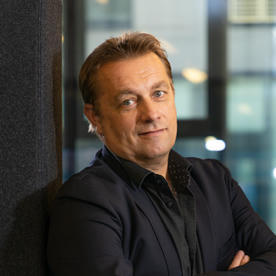
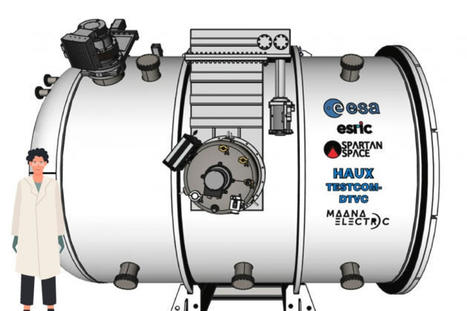


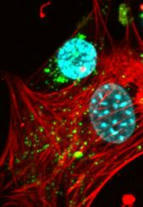
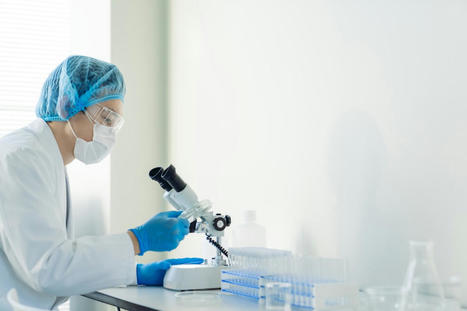
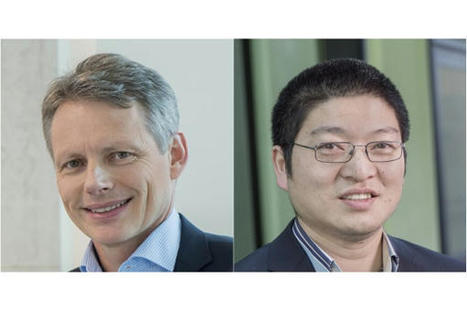
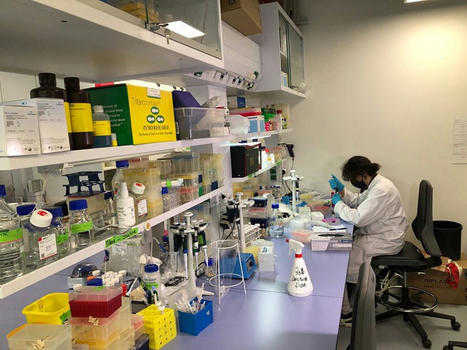
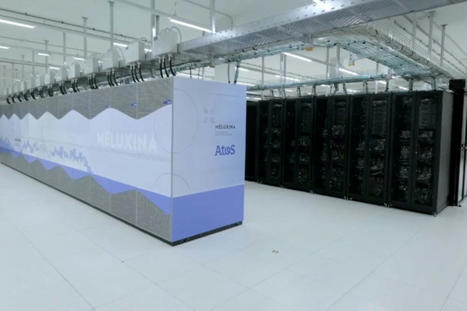
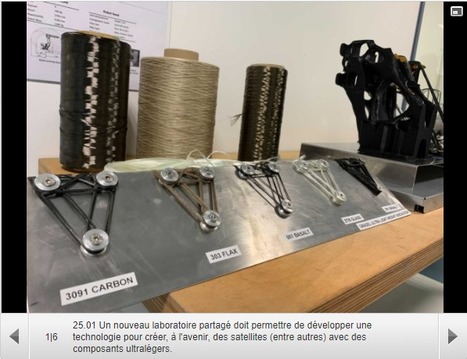
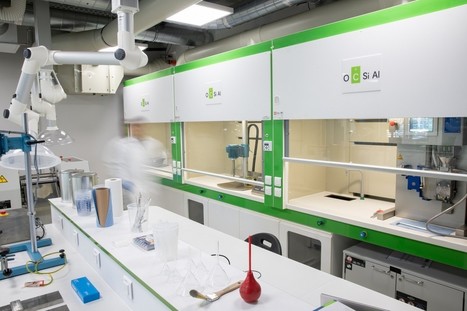


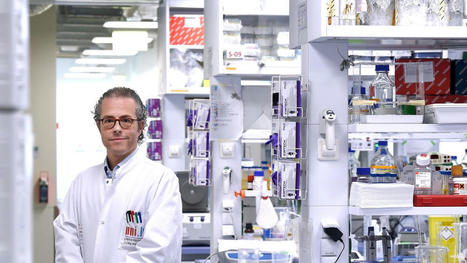
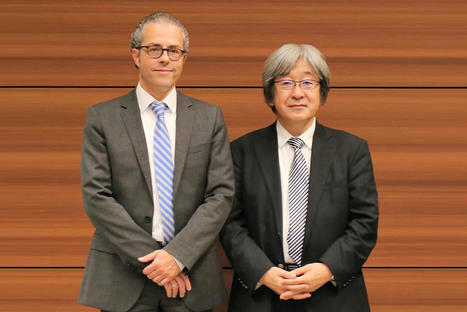
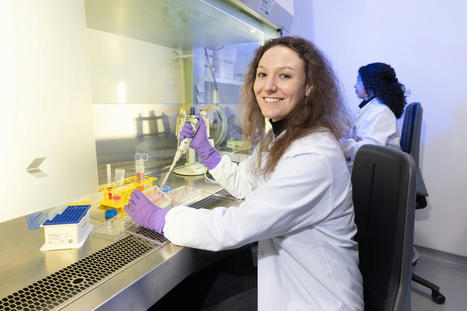
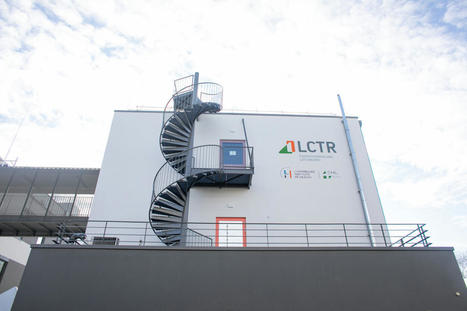

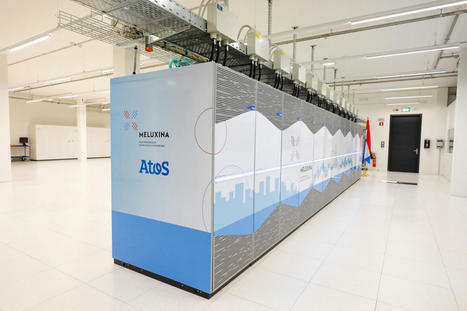
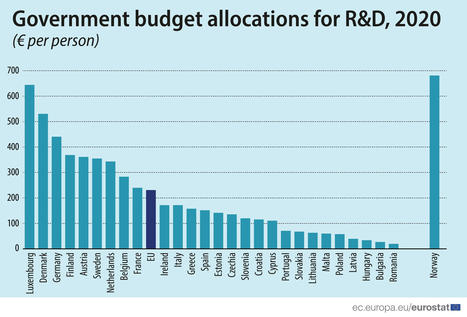
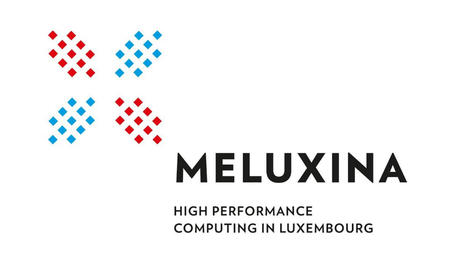
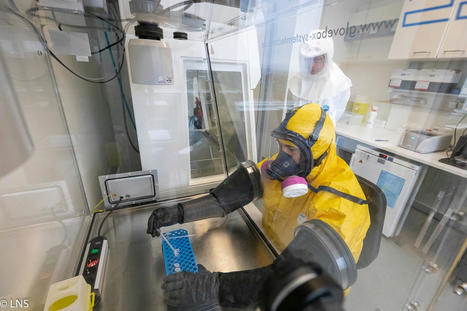
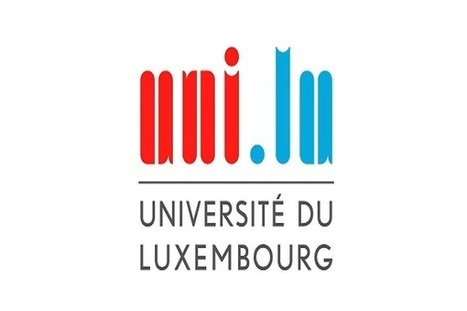





Die Lebensqualität von Parkinson-Patienten kann deutlich verbessert werden, wird die Krankheit frühzeitig erkannt und therapiert. Bisher fehlt ein einfacher Labortest.
Learn more / En savoir plus / Mehr erfahren:
https://www.scoop.it/t/luxembourg-europe/?&tag=Research
https://www.scoop.it/topic/luxembourg-europe/?&tag=Parkinson